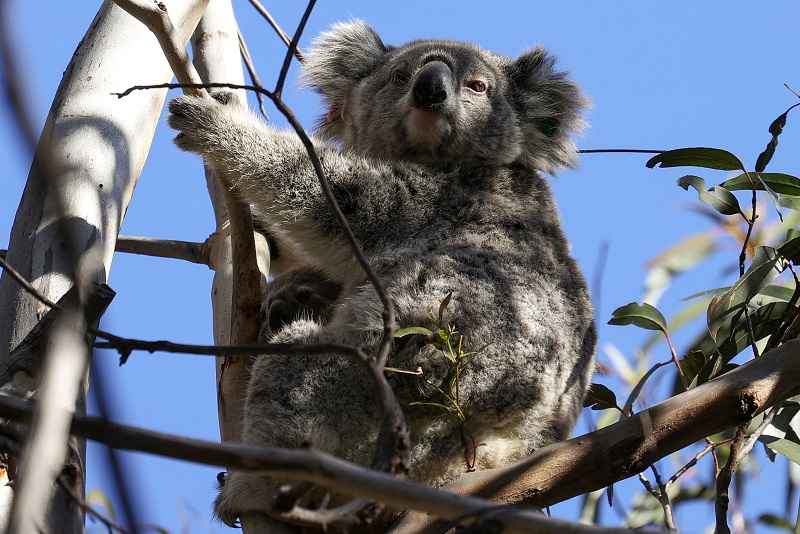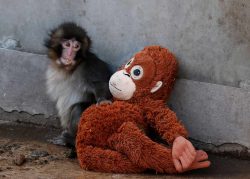
A mother koala named Kali and her joey are seen in their natural habitat in an area affected by bushfires, in the Greater Blue Mountains World Heritage Area, near Jenolan, Australia, September 14, 2020.
14:44 JST, July 19, 2022
MELBOURNE (Reuters) – Australia has lost more mammal species than any other continent and has one of the worst rates of species decline among the world’s richest countries, a five-yearly environmental report card released by the government on Tuesday said.
Animals such as the blue-tailed skink are only known to exist anymore in captivity, while the central rock-rat and Christmas Island flying fox are among mammals considered most at risk of extinction in the next 20 years, largely due to introduced predator species.
The sandalwood tree is also in decline
The report, which comes after drought, bushfires and floods ravaged Australia over the past five years, said increasing temperatures on land and sea, changing fire and rainfall patterns, rising sea levels and ocean acidification were all having significant impacts that would persist.
“The State of the Environment Report is a shocking document – it tells a story of crisis and decline in Australia’s environment, and a decade of government inaction and wilful ignorance,” Environment Minister Tanya Plibersek said in a statement.
She said the previous government received the report in late 2021 and, in contrast, the new Labor government would make the environment a priority.
“I won’t be putting my head in the sand,” she said.
Opposition deputy leader and former environment minister Sussan Ley’s office was not immediately available for comment.
The number of species added to the list of threatened species or in a higher category of threat grew 8% from the previous report in 2016 and would rise sharply as a result of the bushfires that hit in 2019-2020.
The “Black Summer” bushfires killed or displaced an estimated 1 billion to 3 billion animals and razed 9% of koala habitat.
The estimated spending required to revive threatened species is around A$1.69 billion ($1.15 billion) a year, the report said, adding that the previous government’s targeted spending for threatened species was A$49.6 million.
Australia’s average land temperatures have increased by 1.4 degrees Centigrade since the early 20th century.
“Sea levels continue to rise faster than the global average and threaten coastal communities,” the report said.
Many of the country’s most prized ecosystems, such as the Great Barrier Reef which has been hit by mass coral bleaching, are threatened by climate change and environmental extremes, the report said.
While coral reef health is declining due to marine heatwaves, the report also highlighted the threat of ocean acidification, caused by absorption of carbon dioxide from the air, which it said was nearing a tipping point that would cause the decline of coral juveniles that are key to reef recovery.
$1 = 1.4689 Australian dollars
Top Articles in News Services
-

Survey Shows False Election Info Perceived as True
-

Prudential Life Expected to Face Inspection over Fraud
-

Hong Kong Ex-Publisher Jimmy Lai’s Sentence Raises International Outcry as China Defends It
-

Japan’s Nikkei Stock Average Touches 58,000 as Yen, Jgbs Rally on Election Fallout (UPDATE 1)
-

Japan’s Nikkei Stock Average Falls as US-Iran Tensions Unsettle Investors (UPDATE 1)
JN ACCESS RANKING
-

Japan PM Takaichi’s Cabinet Resigns en Masse
-

Japan Institute to Use Domestic Commercial Optical Lattice Clock to Set Japan Standard Time
-

Israeli Ambassador to Japan Speaks about Japan’s Role in the Reconstruction of Gaza
-

Man Infected with Measles Reportedly Dined at Restaurant in Tokyo Station
-

Videos Plagiarized, Reposted with False Subtitles Claiming ‘Ryukyu Belongs to China’; Anti-China False Information Also Posted in Japan
























